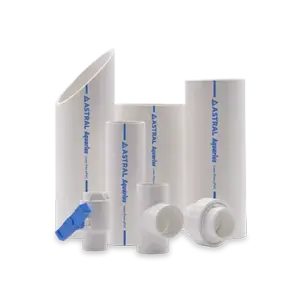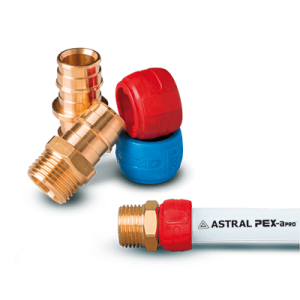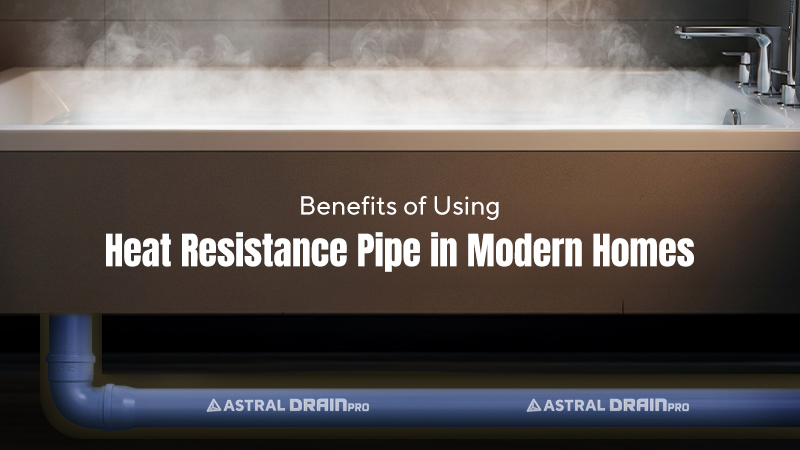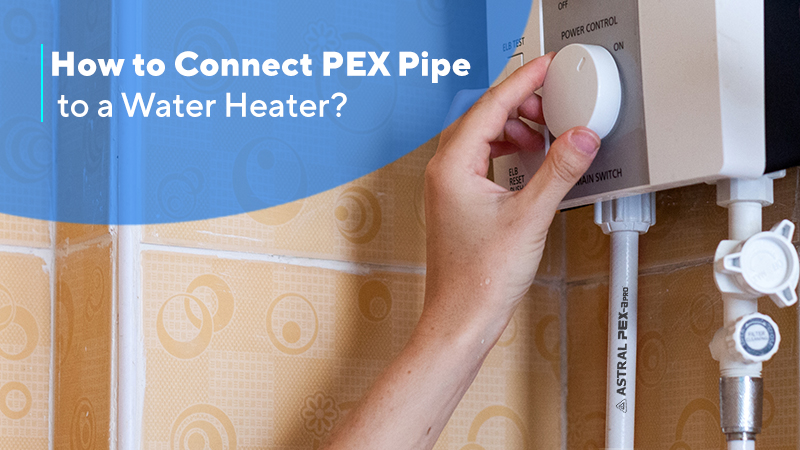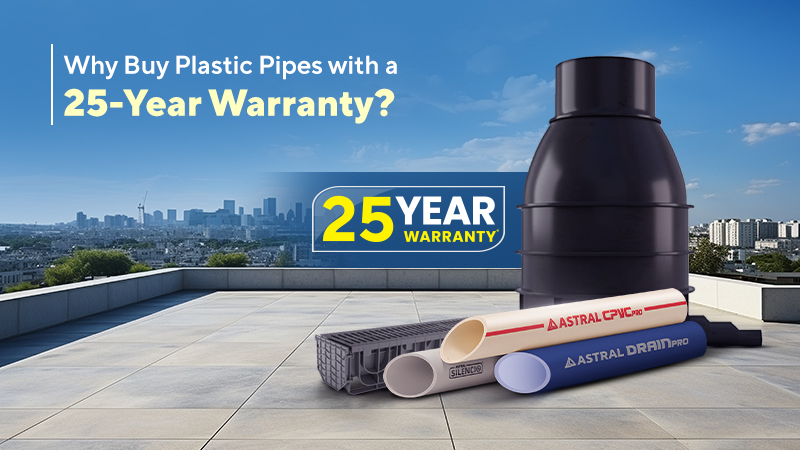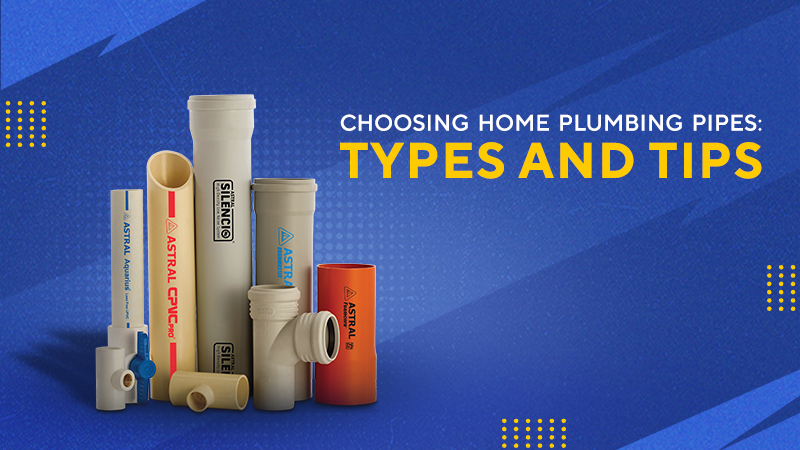
17 Jan 2024
Choosing Home Plumbing Pipes: Types and Tips
Plumbing pipes are essential components of a building’s plumbing system, which is responsible for conveying water and other fluids in and out of the property. There are several types of plumbing pipes commonly used in homes.
Types of Plumbing Pipes
Some of the most common types and tips about them are as follows:
1. CPVC (Chlorinated Polyvinyl Chloride) Pipes
CPVC (Chlorinated Polyvinyl Chloride) pipes are a type of plastic piping system that is known for its high temperature and pressure capabilities. They can withstand temperatures up to 200°F (93°C) and are commonly used in hot water distribution systems. In addition to their high temperature and pressure capabilities, CPVC pipes are also known for their durability and long service life.
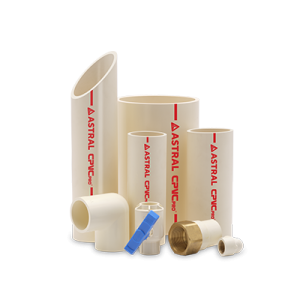
Tips to keep in mind when working with CPVC pipes:
– Use the right tools: CPVC pipes require specific cutting and joining tools, such as a pipe cutter and solvent cement.
– Clean the pipes properly: Before applying solvent cement to CPVC pipes, be sure to clean the pipes thoroughly, this will help to ensure a proper bond between the pipes and the cement.
– Protect the pipes from UV radiation: CPVC pipes can become brittle over time if they are exposed to UV radiation.
The Astral CPVC pipes and fittings have the highest impact resistance. These can be used in the hot & cold water applications in homes for pure and hygienic water supply.
2. uPVC pipes
uPVC pipes (unplasticized polyvinyl chloride) are a type of plastic pipe commonly used for residential and commercial plumbing systems, including water supply lines, sewage systems, and drainage systems. uPVC is inert and does not impart any taste, odor, or harmful substances to the water, thus is considered safe to transport potable water. They are rigid and durable, making them suitable for both above-ground and underground installations.
Tips to keep in mind while handling uPVC pipes:
– Follow installation guidelines: It is important to follow the manufacturer’s installation guidelines when working with uPVC pipes. Improper installation can lead to leaks or even pipe failure.
– Use hangers and supports: To prevent sagging or bowing of uPVC pipes, be sure to use hangers and supports at regular intervals along the length of the pipe.
– Avoid high-temperature applications: uPVC pipes are not suitable for high-temperature applications, as they can deform under heat exposure.
Astral Pipes introduced the first lead-free uPVC pipes – The Astral Aquarius uPVC plumbing system is a non-toxic and lead-free plumbing system. It utilises NSF-approved one-step solvent cement, specifically formulated for the use.
3. PEX Pipes
PEX (cross-linked polyethylene) pipes are a type of plastic pipe commonly used in residential and commercial plumbing systems. PEX pipes are highly resistant to cracking, corrosion, and scale buildup, ensuring long-lasting performance and maintaining water quality. They can withstand high temperatures and pressures, making them suitable for both hot and cold water supply systems.
Some tips for working with PEX pipes include:
– Use the right tools: PEX pipes require specific cutting and joining tools, such as a PEX pipe cutter, crimping tool, or expansion tool. Be sure to use the right tools for the job to ensure a secure and leak-free installation.
– Avoid exposure to certain chemicals: PEX pipes can be damaged by exposure to certain chemicals, such as gasoline, solvents, and some insecticides. Be sure to avoid exposing PEX pipes to these types of chemicals.
– Pressure test: According to the building standards, it is compulsory to pressure test the water pipelines before covering them. For PEX-a PRO pipes expansion technology is based on the plastic memory of the pipes, so it is important to observe a minimum waiting time before doing the pressure test.
The Astral Pex-a PRO is a next-generation plumbing system with futuristic capabilities and characteristics.
Tips for Buying Perfect Plumbing Pipes for your Home
A few pipe systems that should be avoided while making your decision. Copper pipes, Galvanized Steel pipes, and Cast Iron pipes – although still in use, these plumbing systems have become outdated and require a lot of maintenance when used.
Certain tips to keep in mind when working with these pipes:
1. Look for discoloration, corrosion, or unusual odors. Pay attention to areas where pipes are exposed, such as basements or crawl spaces.
2. Implement a maintenance schedule to address potential issues proactively. This may involve cleaning, flushing, or replacing certain components to mitigate deterioration and extend the lifespan of the system.
3. If your outdated piping system includes materials like lead or asbestos, take necessary precautions to protect your health and the environment.
4. These pipes are also prone to corrosion over time, which can lead to leaks and reduced water pressure.
Please note that these are general tips and guidelines, and it’s always recommended to follow the manufacturer’s instructions, local building codes, and consult with a licensed plumber or building professional for proper installation and maintenance of home plumbing pipes.
Read our blog on Advantages of PVC Pipes and Fittings


